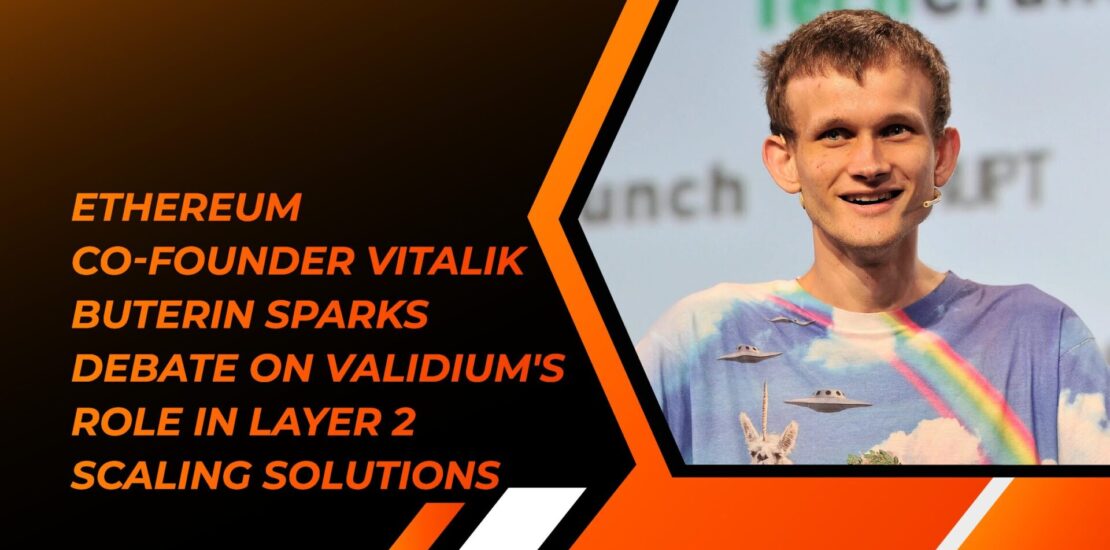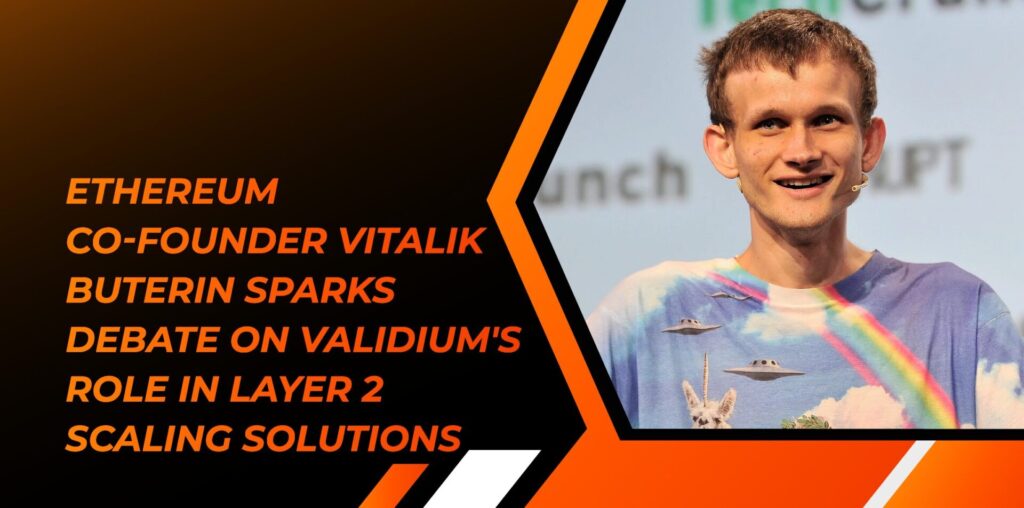- January 18, 2024
- Posted by: [email protected]
- Category:


In a recent and thought-provoking exchange, Vitalik Buterin, the co-founder of Ethereum, ignited a spirited debate regarding the classification of various layer 2 scaling solutions, specifically challenging the status of Ethereum’s validiums as authentic rollup solutions.
The discussion originated from a post by Daniel Wang, the founder of Taiko, a prominent Ethereum rollup solution. Wang argued that if an Ethereum rollup relies on an external data chain, such as Celestia’s modular blockchain, it should be categorized as a validium. Buterin, in agreement with Wang’s assertion, emphasized a fundamental criterion for being considered a rollup: the unconditional security guarantee that allows users to retrieve their assets even in the face of collusion from others.
Buterin underscored a crucial point in the conversation – if the data availability of a scaling solution depends on an external system, the core security guarantee of a genuine rollup cannot be fully maintained. Validium, as a scaling solution for Ethereum, employs zero-knowledge proofs to facilitate off-chain transactions while still leveraging the Ethereum mainnet for security and verification. Unlike ZK-rollups, validium networks refrain from posting transaction data to layer 1. Instead, they submit cryptographic proofs of transaction validity, aiming for increased scalability by avoiding the necessity of storing complete transaction data on-chain.
However, the inherent challenge for validiums lies in data availability, relying on operators to honestly post proofs. Networks like Celestia employ modular blockchains, comprising data availability layers and validation layers, with validiums facilitating swift and private transactions. Taking the discourse to the decentralized social media platform Warpcast, Buterin proposed adjustments to the terminology related to these scaling solutions, suggesting terms like “security-favoring” and “scale-favoring” be replaced with “strong” and “light” for brevity.
While Buterin’s proposals found support, there was dissent within the Ethereum community. Ryan Berckmans argued that validiums should indeed be considered layer 2 networks that settle on Ethereum. However, an authoritative layer 2 analytics platform, L2Beat, contradicted Berckmans, asserting that validiums are not layer 2 solutions. L2Beat contended that validiums and optimiums introduce additional trust assumptions by not publishing data on layer 1.
As Ethereum-based layer 2 network Arbitrum claims a substantial market share, the imminent Ethereum Dencun upgrade, featuring changes proposed by EIP-4844, is expected to reduce rollup transaction costs. This development will benefit Layer 2 solutions like Arbitrum by lowering gas fees and enhancing network capacity. The ongoing discourse exemplifies the dynamic nature of layer 2 scaling solutions within the Ethereum ecosystem and the persistent efforts to refine terminologies and classifications, reflecting the continual evolution of blockchain technology.



